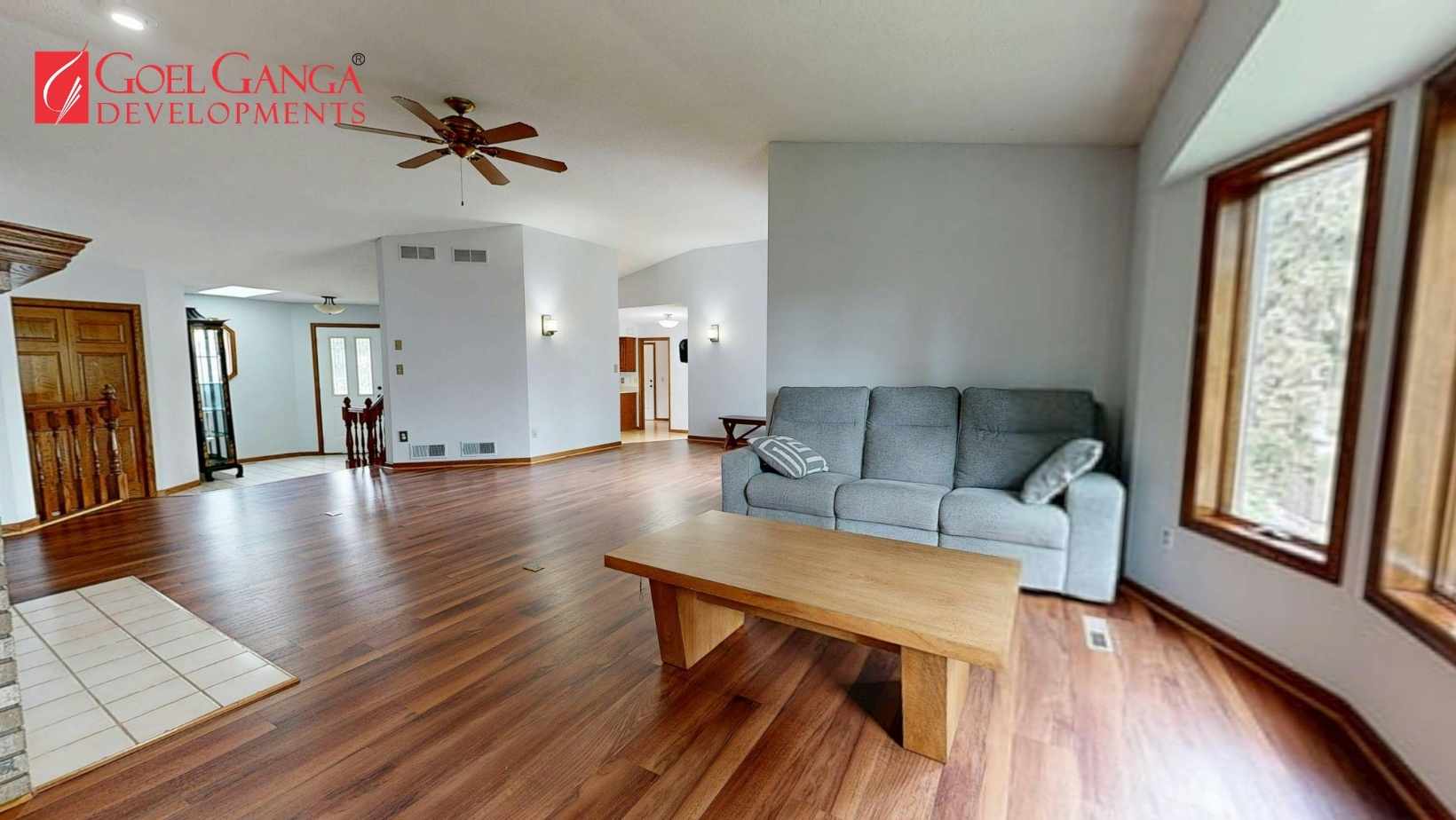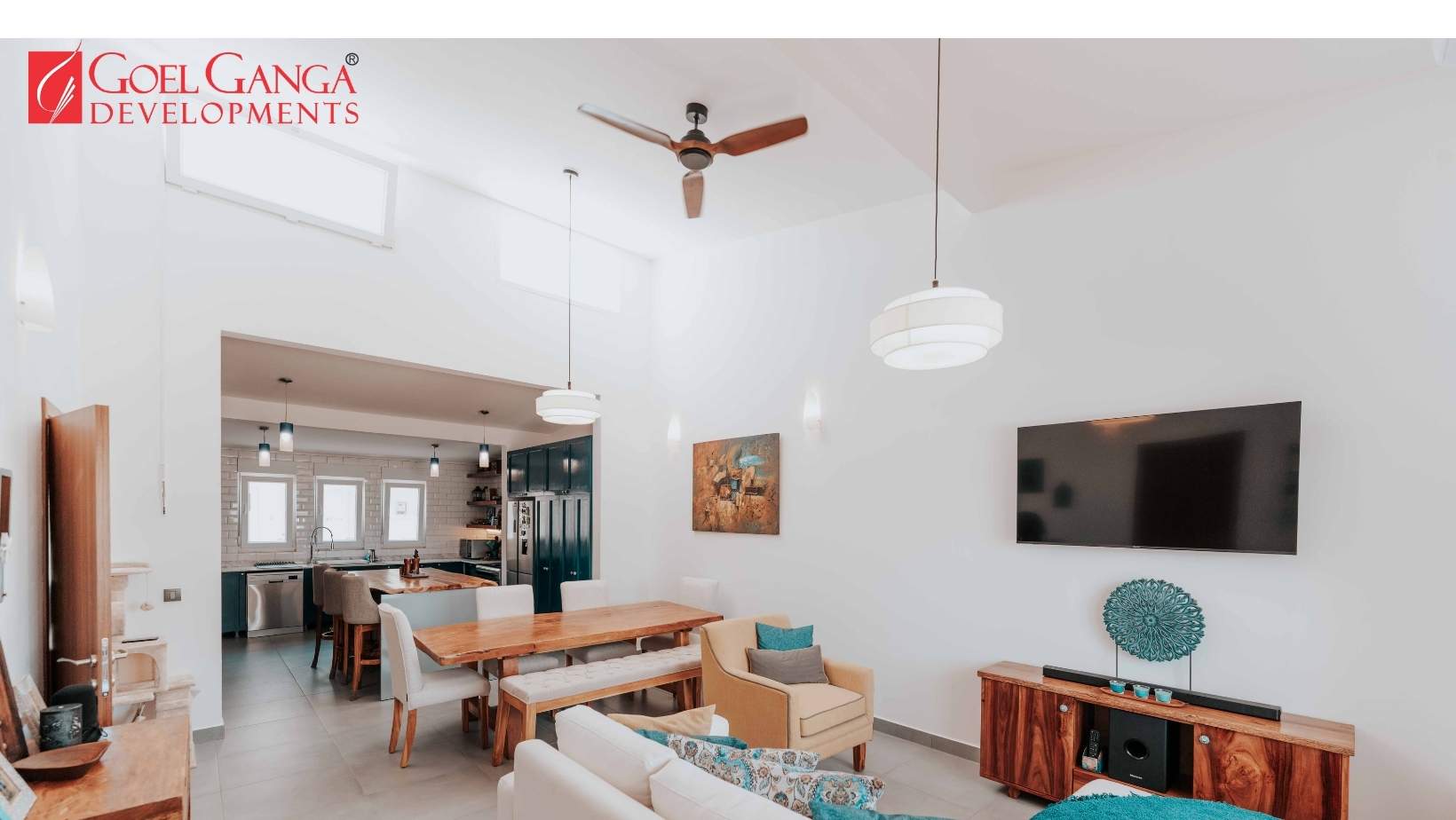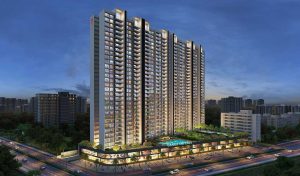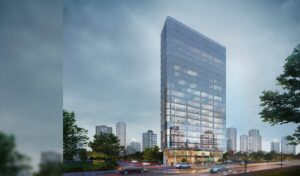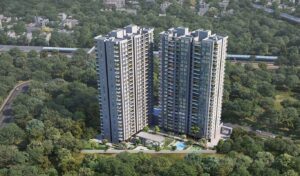When we think of a house, we think of our loved ones peacefully and safely snuggled in a place we name ‘home’. Knowing all of the costs involved in house buying is vital for making an informed decision and ensuring to receive the home of your dreams, and planning for it ahead of time is even more important. Aside from the down payment, Equated Monthly Instalments (EMIs), and interest, there are other costs that are rarely recognised and considered during the home-buying process.
Let’s understand all of the large and small expenditures that is need to account for before, during, and after purchasing a property in order to have an exciting and stress-free experience, as suggested by Mr. Anurag Goel, the Director at Goel Ganga Developments.
Table of Contents
ToggleStamp Duty
Stamp Duty is a charge imposed by the the State Governments on all property transactions undertaken within India under Section 3 of the Stamp Duty Act, 1899. As a buyer, paying Stamp Duty is one of the first steps towards having the home registered in your name. Stamp Duty varies by state and ranges between 5% and 7% of the entire cost of the property in question. You may calculate the amount using an online calculator. To receive an estimate of Stamp Duty, simply input the state in which you want to acquire the property and the price of the property.
Charges for Registration
Once the Stamp Duty is paid, the document must be registered with a Sub-Registrar in accordance with the Indian Registration Act. It acts as legal documentation of property ownership or transfer and, in most situations, must be paid by the buyer. Registration must be done in the jurisdiction where the property is located and is determined by the entire cost of the property. The cost, like Stamp Duty, varies by state and may be computed online. To get a fair rate, check to see if the builder has any special deals on Stamp Duty and Registration Charges that are lowered or avoided.
Property Tax
Property tax is an annual fee levied by the Government of India on property owners. This tax is based on the value of the held property and is collected by the local government or municipal corporation, whoever is authorised to do so in the relevant state.
Preferred location charges (PLC)
If you have your sights set on an accommodation that is in an ideal location in terms of property view and/or facility accessibility, you must additionally consider paying the Preferential position Charge (PLC). Unlike other levies, the cost of Preferential Location varies across developers and is determined by a variety of criteria.
Floor Rise Charges
If you want to purchase an apartment on a certain floor level, often on the upper levels, you may be able to do so for an extra cost. Floor rise costs, as the name implies, are determined by the precise floor you pick. Floor rise charges are often included in the agreement value, however, they vary by builder and may not even be a distinct component. Typically, floor rise rates are given per square foot and might be established by the builder for each level or a specific group of floors in slabs. When evaluating the offer, ask about the floor increase aspect.
Maintenance Charges
Maintenance of certain amenities in a society, such as a lift, park, or clubhouse, is an additional expenditure that must be factored into your own financial plan. The builder, or Residents’ Welfare Association (RWA), negotiates the price and charges every resident of the society a small fee. In most circumstances, the builder charges the fee upfront for the first year until the Residents’ Welfare Association (RWA) is created and duties are transferred.
COST OF PARKING SPACE
In most circumstances, buying a parking place in a desirable area comes at a price. Its cost is determined by the location, size, and kind of parking, such as stack, puzzle, tandem, or independent. Purchasing a parking spot as part of your real estate deal is always a good idea to safeguard the safety of the vehicles you own. If you do not acquire a parking place, you will be required to park at your own risk, maybe outside the project grounds. Speak with the developer to learn about the monetary aspect of the parking spot in the final cost and budget accordingly.
Corpus fund
A Corpus Fund, also known as a Capital Fund, is one-time money collected by the developer and set aside for the housing development’s purpose, existence, and maintenance. It functions similarly to a pre-paid maintenance fee and is used for maintenance purposes. However, it is not the Corpus Fund itself, but the interest earned on the deposited sum, that can be utilised by the developer for the previously mentioned charges. When a housing society or flat association is created, the Corpus Fund is transferred to them.
Utility Charges
Payments for electricity, gas, and water connections are just a few of the additional fees to consider when acquiring a house. Once you’ve paid the installation fees, these utilities will charge you a monthly fee based on your consumption. These costs are levied by the local municipality and tracked using meters placed nearby or on your property.
Brokerage fee
If you want to use a broker in your home-buying pursuit, you must consider broking, which is the cost charged by the broker, who can be an individual or a corporation. Most brokers or businesses operate on a fee basis with the developer, charging between 1-2% of the entire property price, although there are some exceptions. Before proceeding with the transaction, you should explain any broking fees.
Interior Work
Your home’s walls, furnishings, and décor reflect your individuality; therefore, customising your space requires additional fees. The cost of painting, plumbing, furniture, upholstery, appliances, and gadgets must be considered during the planning process, and a specific amount, based on your urgent needs, must be budgeted for in your house-buying budget.
Property Insurance
You might also think about getting Property Insurance or Home Insurance for your hideaway. There are several alternatives available, such as fire insurance, burglary insurance, or all-risk insurance, which will cover not only the structure of your home but also its contents in unforeseen circumstances, protecting your valuables and funds.
Planning is the ideal basis for almost everything in life. Doing so creates an environment in which one may rest, knowing that even little details have been considered and accounted for. Surprises are a part of life, so planning for a few more extra charges will guarantee that they are welcomed with a cheer.




